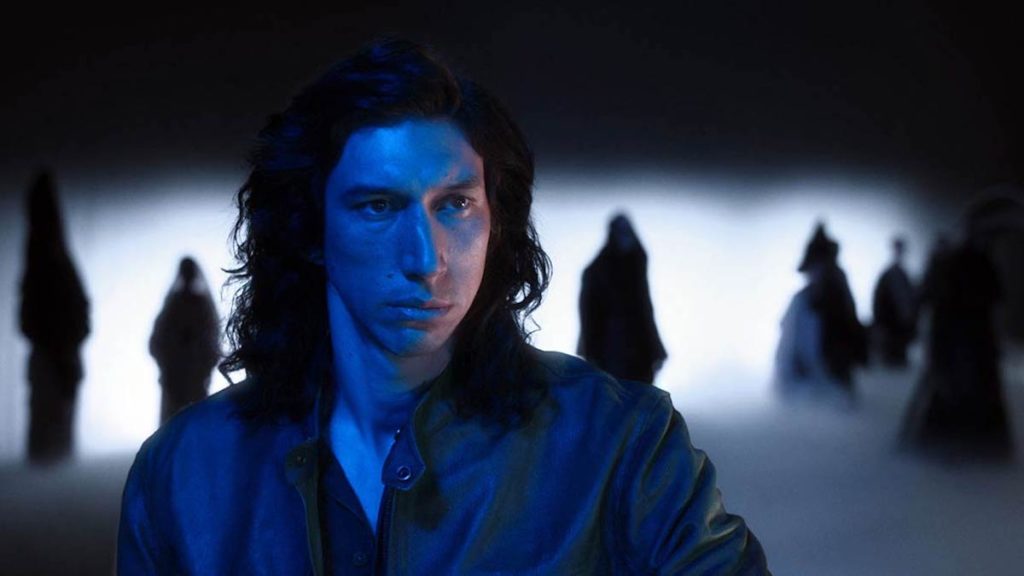Read also:
How to Watch FX Live Without CableHow To Watch AMC Without CableHow to Watch ABC Without CableHow to Watch Paramount Network Without CableLeos Carax’s latest is a stripped-down rock opera that oscillates between parody and satire to fittingly uneven effect.
As if chomping at the bit to show its true self, Annette immediately disrobes. Director Leos Carax, off-screen during the opening credits, tells the audience to stay silent. Audio tracks spray over shots of Los Angeles and, in a studio, he asks his musicians, “So, may we start?” He’s now speaking not to us but Ron Mael and Russell Mael of Sparks. Both of them share a story by credit, the latter having written the screenplay, and already, the film has dived feet first into its own joke. But Carax’s latest doesn’t just strip itself naked. It takes off its own skin, as a rock opera and as a movie.
The bones are all there, the organs too. All signs point to something overflowing with texture, and yet, by its own volition, the picture dismisses the flesh audiences would hope to hook their nails into. The formal lyricism operates somewhere between fractal and farce. The actual lyrics themselves are, by design, thuddingly literal, crude approximations of human behavior. It’s cynical and silly and stolid as an experience, and it’d feel excessive if it weren’t for how Annette forces audiences onto the stage alongside its characters. Is it a satire? A parody? Earnest? Sarcastic? It’s all of the above, really.
And the song goes like this: Henry McHenry (Adam Driver) is a comedian whose work more closely resembles the film’s own satire of performance art. However, in the world of Annette, the audience does at least half the work. Watching him, they give him something to go off. They’re the heart, a Greek chorus of call-and-response that makes them just as much as if not more of a collective artist than the man in the spotlight. Yet, it works like this because he’s a man. His wife, Anne (Marion Cotillard), is a vastly more talented opera singer, dying on stage night after night. But what about her audience? How do they call to her?

Well, they don’t. Paparazzi focus on her personal life as it pertains to her kinship with Henry, but while he benefits from a codependent relationship with his audiences, she doesn’t. She falls into herself, her internal conflict but once brought to life in no small part to Carax and DP Caroline Champetier’s hypnagogic camerawork and staging. Annette has such moments of earnestness at times, but it’s their collective rarity that makes the overall film hard to pin down. Again, it’s a piece of bones and organs, no skin. It may seem obvious at points, and that’s probably because it really is. There’s more to it, though.
As the couple rides on Henry’s Triumph through the nighttime desert plainly singing “we love each other so much,” it’s easy to laugh. As Driver’s performance becomes increasingly robotic as the film progresses, it’s a natural response to scoff at his sort of talk-singing. But Carax is in on the joke, constantly playing chicken with his and his characters’ pretensions in ways that keep its 140-minute runtime fluid. The stilted shifts into something emotionally earnest, but it’s all clouded in a detached irony that maintains its satirical bent. Like how empty this LA is around the edges, it borders on apocalyptic at times.
Carax is in on the joke, constantly playing chicken with his and his characters’ pretensions in ways that keep its 140-minute runtime fluid.
Part of it has to do with its pair of cynicism and surrealism. It’s not too far in Annette that Henry and Anne inevitably fall into the cliché of having a baby to save their marriage, giving the film its title character. She’s first shrouded in darkness right after her birth in a way that gives a blocky quality to her silhouette; it’s once she comes into plain view that Carax reveals Annette to be portrayed by an animatronic puppet. (With her hair and undead motions, she could pass as Chucky’s stunt double.) No character mentions this. It’s strictly subjective, one of many ways Carax gleefully messes with his viewers.
Annette soon shows herself to be talented in a handful of surreal ways, propelling the film into a swirl of melodrama both descending from and running parallel to what came before. The artifice of it all doesn’t let up, though. If anything, it compounds itself, oscillating between parody and satire with fittingly unequal aplomb, sometimes bordering on outright Camp. It’s like the different organs keeping Annette alive begin to falter. It’s as if its skeleton is the only thing giving it any sense of shape. It may not be the most consistently successful approach, but it’s thrilling to watch it rattle off and on its own pathway.
Because while the end-of-days hue Carax’s film lends here often runs in tandem to its characters’ decay, there’s a sense of growth here. As Henry and Anne’s mid-century modern home becomes overtaken with moss and trees, the film manages to become a tale of rebirth. As Annette herself falls into the cyclical exploitation in the arts, here shown as familial, it’s about having to do something positive with that rebirth. For Carax’s film to embrace and repurpose its own cants is one thing. For the audience to also do so is something different altogether.
Annette hits theaters this Friday, August 6 before streaming on Prime Video Friday, August 20.